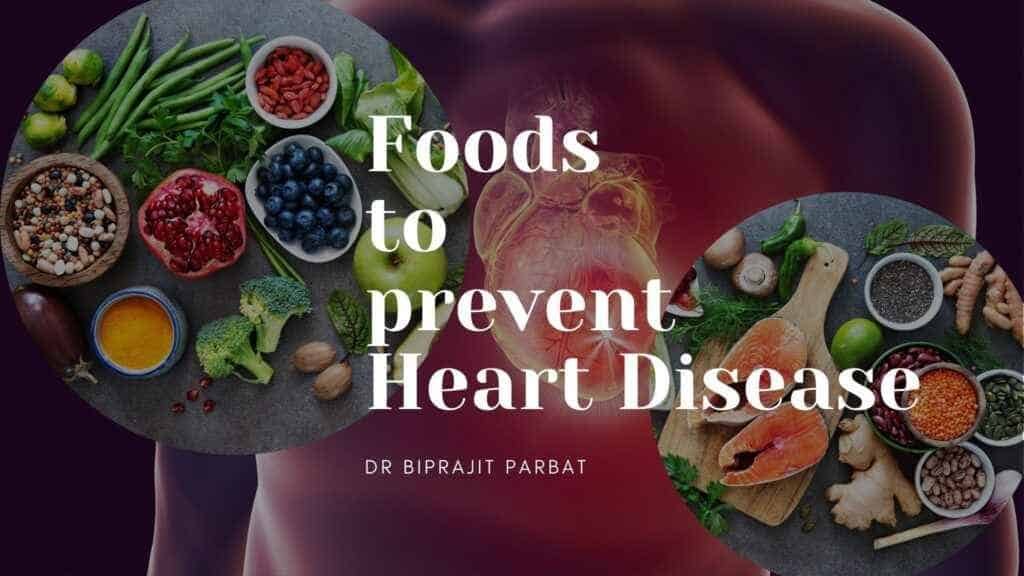Food to prevent Heart Disease – a comprehensive scientific review

In the Western world today, heart & related diseases remain one of the leading causes of sudden death with almost an average of 30% worldwide cases.
There is evidence that proves that a healthy dietary plan and lifestyle can help reduce the occurrences of HRD. Again, over the past 25 years, there is a rise in the cases of CVD, making it a public health priority, especially in the areas of prevention through positive lifestyle adjustments.
Dietary interventions provide the opportunity for the combination of different food items and nutrients to improve help curd some of the risk factors of heart & related diseases (HRD). Therefore, the benefits of a healthy diet in the prevention of HRD are numerous and offer some potential benefits.
According to 2013 data, the leading cause of death in Western nations is heart & related diseases. The average death rate as a result of heart & related diseases stands at 31.5% a year, which is around 17.3 million deaths.
Notwithstanding, the number of deaths has remained on the decline over the last decade.
According to statistics, one out of every three deaths and one in four deaths in the US and Europe accordingly is a result of heart & related diseases.
According to future projections, approximately 45.1% that is >130 million adults in the United States will have signs of clinical expressions of heart & related diseases.
Heart & related diseases (HRD) is not the problem of the heart alone but a group of problems that affects the heart and the blood vessels, include:
- atherosclerosis,
- hypertension,
- peripheral artery disease,
- stroke, and
- other vein diseases.
HRD are often linked to unhealthy dietary style. The following points can constitute a poor dietary pattern:
- Too much intake of sodium
- Excessive consumption of processed foods
- Consuming unhealthy fats
- Excessive consumption of sugar
- Low consumption of fruits and vegetable
- Low intake of whole grains, fibre, and legumes
- Low intake of fish and nuts
- Lack of physical activities
- Stress, overweight, and obesity
- Excessive intake of alcohol
- Bad smoking habit
Again, Heart & related diseases often occurs alongside multiple comorbidities like diabetes, obesity, cholesterol issues, and hypertension, which are among the top ten risk factors of mortality around the world today.
Also, the rising cases of Heart & related diseases over the last 25 years has become a priority in the public health sector.
Furthermore, different scientific researches show that nutrition might be the main reason for a large number of Heart & related diseases deaths.
Certain diets can reduce the risk factors of Heart & related diseases and may also help to reverse the effect of heart diseases.
Dietary Patterns and Heart Diseases
Several studies suggest that a healthy dietary pattern contains a low plasmatic concentration of pro-inflammatory markers.
On the other hand, the Western model of diet (meat-based dietary pattern) has a link to high levels of low-grade inflammation.
The combination of different foods and nutrients can have a synergistic health effect, which can be beneficial.
According to the current body of evidence, a healthy dietary pattern shares different similarities like
The HIGH CONSUMPTION OF
- fibre,
- vitamins,
- antioxidants,
- polyphenols,
- minerals,
- polyunsaturated fatty acids (PUFA) and
- monounsaturated fatty acids (MUFA),
The LOW CONSUMPTION OF
- refined sugar,
- salt,
- carbohydrates of high glycemic load,
- saturated and trans fats.
It translates to the high consumption of vegetables, fish and seafood, fruits, whole grains, nuts and seeds, vegetable oils (extra virgin olive oil), and dairy products in combination with the low consumption of pastries, red and processed meats, and soft drinks.
The benefits of Mediterranean and DASH diets for cardiovascular benefits have been well studied.
Both dietary patterns are effective in reducing the occurrence of heart & related diseases (HRD). They help in the maintenance of better body weight and down-regulates low-grade inflammation, which helps to improve the other risk factors and reduces the number of clinical events.

Mediterranean Diet
To date, the main importance of the Mediterranean diet (MeDiet) against CVD is to provide better control over the risk factors of HRD.
Again, the Mediterranean diet helps to provide better control over the blood pressure (BP), glucose, lipid profile, gut microbes, and arrhythmic risks.
Another interesting fact about MeDiet is that it helps to control the appearance of pro-atherogenic genes like cyclooxygenase-2 (COX), low-density lipoprotein molecules, and MCP-1.
It also helps to reduce the plasmatic levels of plaque rupture and stability linked molecules.
According to ten years study on 1514 men and 1528 women (>18 years) showed that the increase of 10% in the adherence to MeDiet was linked to 15% lower odds of the occurrence of HRD.
On the other hand, there was a 29% likelihood of HRD incidences in people without a MeDiet.
Another study on 5079 people free of CVD showed that there is a link between high-quality dietary patterns and less regional adiposity.
The results also showed that people with a high-quality diet had
- lower BMI,
- insulin resistance, and
- Inflammation in the body (CRP).
DASH Diet
According to research, the adherence to a DASH (Dietary Approaches to Stop Hypertension) dietary pattern helps in the improvement of Blood pressure
- Glucose-insulin homeostasis
- Bodyweight
- Lipoproteins
- Blood lipids
- CVD risks
- Mortality rate
- Endothelial function
- Inflammation grade
A major characteristic of the DASH diet is the intake of the high intake of
- vegetables and fruits,
- whole grains and nuts,
- a low-fat diet,
- fish and
- poultry products.
A DASH diet also discourages the high intake of red meats and processed meat, saturated fats, sweet beverages, refined grains, and sodium.
Many studies have shown how essential the DASH diet is in protecting people from HRD. The effect of the DASH diet on inflammatory markers and oxidative stress cannot be undermined.
Results show that the high intake of DASH diet helps to reduce inflammation in the body (reduced high hs-CRP concentration).
When compared to other diets, the DASH diet is very effective. However, the effect of the DASH diet is the same as the benefits of consuming other healthy diets.
An increase in the intake of the DASH diet also helps to control weight gain and reduce obesity.
According to interventional studies, the DASH diet was also found to aid in the improvement of inflammation, insulin resistance, and oxidative stress in women suffering from gestational diabetes between 24-28 weeks gestation.
Fruits and Vegetable
According to the American Heart Association (AHA) and the European Society of Cardiology (ESC), the daily consumption of multiple servings of fruits and vegetables is essential to reduce the risk of CVD.
The recommendation from AHA and ESC is based on the results of recent epidemiology studies and meta-analysis. According to a meta-analysis in 2018 with 83 studies, an increase in the consumption of fruits and vegetables was inversely linked inflammation in the body (reduced CRP and TNF-α levels).
Increasing the intake of fruits and vegetable has numerous benefits. It helps to control plasma concentration levels and fight the risk factors of CVD. Generally, the intake of vegetables and fruits is essential for healthy living.
Conclusion
There is a close relationship between the quality of the diet we consume and heart & related diseases (HRD). Therefore, in addition to a healthy lifestyle, it is also essential to promote a healthy diet early enough from childhood. Mediterranean and DASH diets should be promoted against unhealthy dietary patterns like the Western diet that is very common today. Western diet supports the high consumption of salt, refined sugar, saturated, and trans-fat. Despite the evidence of potential health benefits of food to the risk factors of HRD, it is vital to conduct more interventional research with more subjects and longer follow-up days.





